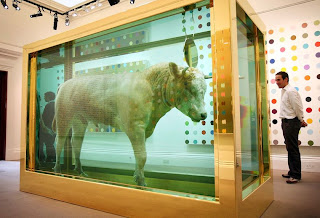What god do you serve?

I keep coming back to this amazing lecture by Max Weber, which he gave in 1918, two years before he died, called Science as a Vocation. In it, he talks about the polytheism of modernity, how various gods and demons ‘strive to gain power over our lives’, and we have to decide which god to serve, and obey ‘the demon which holds the very fibres of his life’.
It's an interesting question: which god do you serve? Who or what is your main priority in life? What is the thing which makes your heart pound, the thing which comes first, to which everything else is secondary?
For many of us, today, our career is our vocation. Weber noticed how ‘vocation’ has changed meaning, from a calling to God, to a calling to accountancy, say, or chartered surveying. And there is nothing wrong with putting your work first. We spend most of our lives working, after all. We want to be good at what we do, and to be respected for it. But is that enough? Is that a meaning to live for?
Tolstoy, who was a profound influence on Weber (and on William James, by the by), would say: what’s the point of slaving away at your career in law, your job at the investment bank, when you’re going to die, and practically nothing will remain. The waves will wash away your sandcastles and erase any sign of all that work within just a few years. He was a cheery old soul, Tolstoy.
But we’re doing it all for our family, we might say. That is the true centre of our life, the thing which gives everything else meaning. And again, there’s nothing wrong with that either. I look on the sacrifices my friends are making for their children in awe - they’re constantly knackered, and yet somehow preserve their patience and gentleness with their ever-demanding kids. It makes me profoundly grateful to my parents, who are still being selfless and supportive of me and my brother. But is the meaning of life simply to have children and replicate your DNA? And the meaning of their life, in turn, is simply to have children? And on, and on. No higher meaning that multiplication?
Or perhaps the state or nation is your god. Individuals pass away, families rise and fall, but the state endures forever (or for a good few centuries anyway, assuming Scotland doesn't leave). Weber thought nationalism could be a sort of substitute for religion, stirring people’s passions, helping them bond with their neighbours over a common cause. But that god can demand particularly bloody sacrifices, in the name of ‘national interest’. Look at dear old president Putin, who sees Russia as a god worth doing anything for - worth killing for, certainly, and without much compunction. Weber would add that politics rapidly turns into petrified bureaucracies which have forgotten their purpose and which strive only to preserve their own existence (like, say, the KGB).
What about hedonism? Again, this is a perfectly legitimate choice for a god. It’s one that many of us serve - we may claim to serve other gods, like our work or families, but really we live for those occasional moments of sensual abandon. This is pretty much how I live - it's just that I'm a rubbish hedonist, so my moments of sensual abandon are, alas, more occasional than others. I admire successful hedonists. But I also suspect that hedonism is a young person’s game, and that the god takes its revenge on your body and even your soul as you get older.
Or perhaps art is your god. You may say to other people ‘I am a writer’, and feel rather noble. You may say lofty things like ‘unless writing is an absolute necessity, leave it’, and feel very good about yourself. Believe me, I admire this religion of aestheticism too. I appreciate the willingness to put art above everything else. And even more I appreciate non-artists for whom the appreciation of art is the highest thing in their life.

Yet if art becomes your religion, I think it can very easily degenerate into a sort of precious and preening aestheticism, reminiscent of Cecil Vyse in Room With A View, and that sort of dandyish Swimburnean aestheticism is not, I think, robust enough to withstand the rougher blows of fortune. I even think that the ‘art for art’s sake’ philosophy has never produced very good art. It’s not an inspiring enough motive to give artists wings to reach the heights or plumb the depths.
How about science? Can science give our life meaning and tell us how to live? This is the question Weber asks himself in Science as a Vocation, and his response is fascinating, particularly given the debate at the moment over ‘Scientism’ and whether we should embrace it or not.
But I’ve reached my 900 word limit, so let me split this article in two - you can read the second half here: The God of Scientism.
